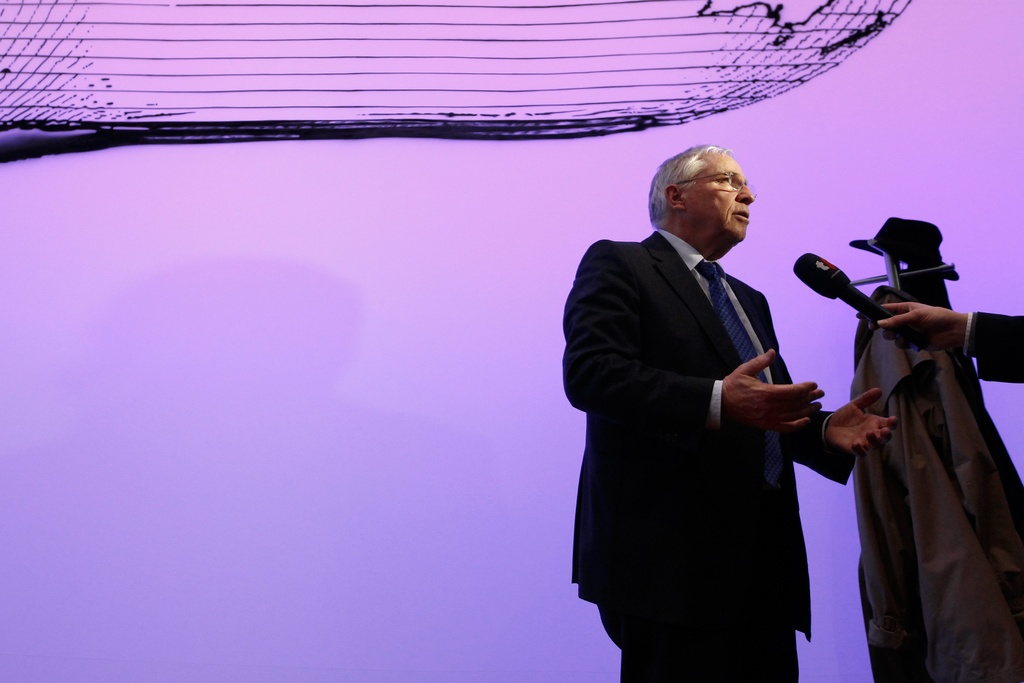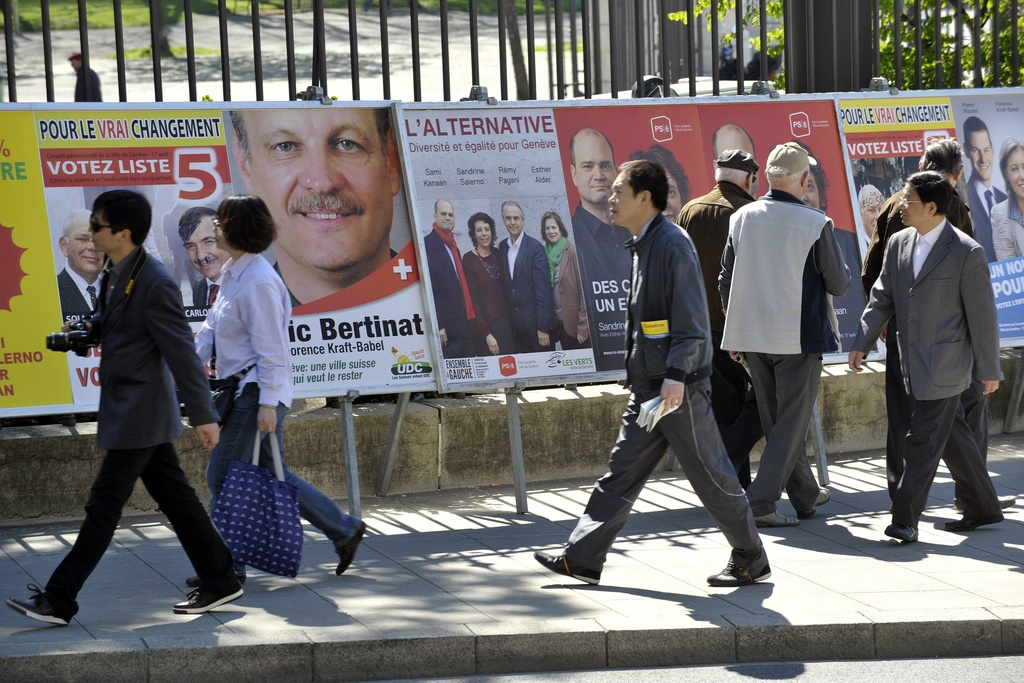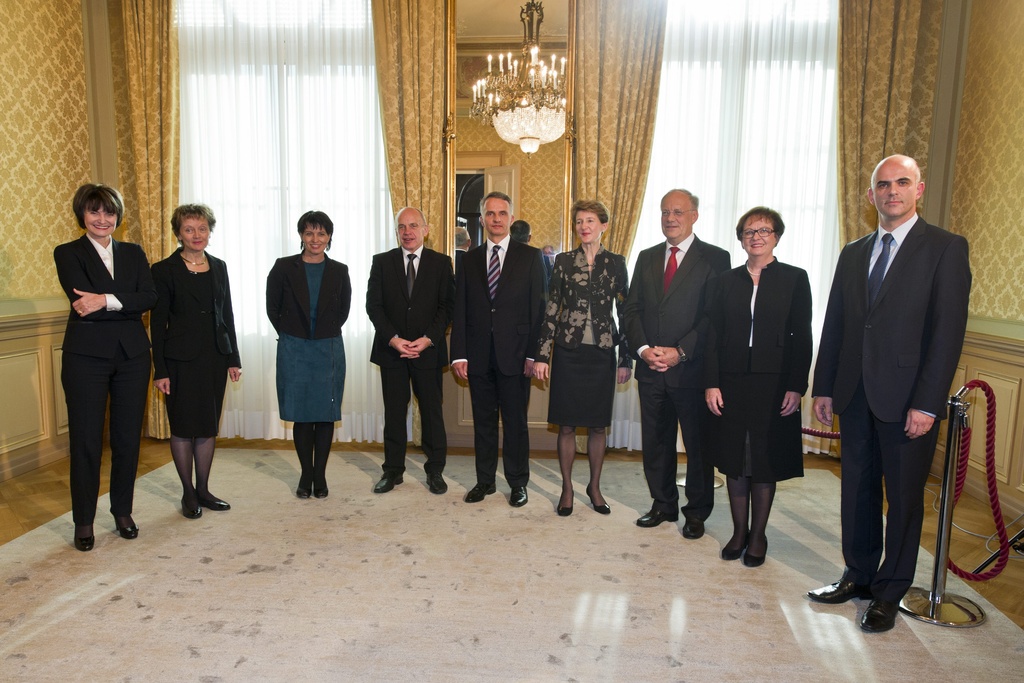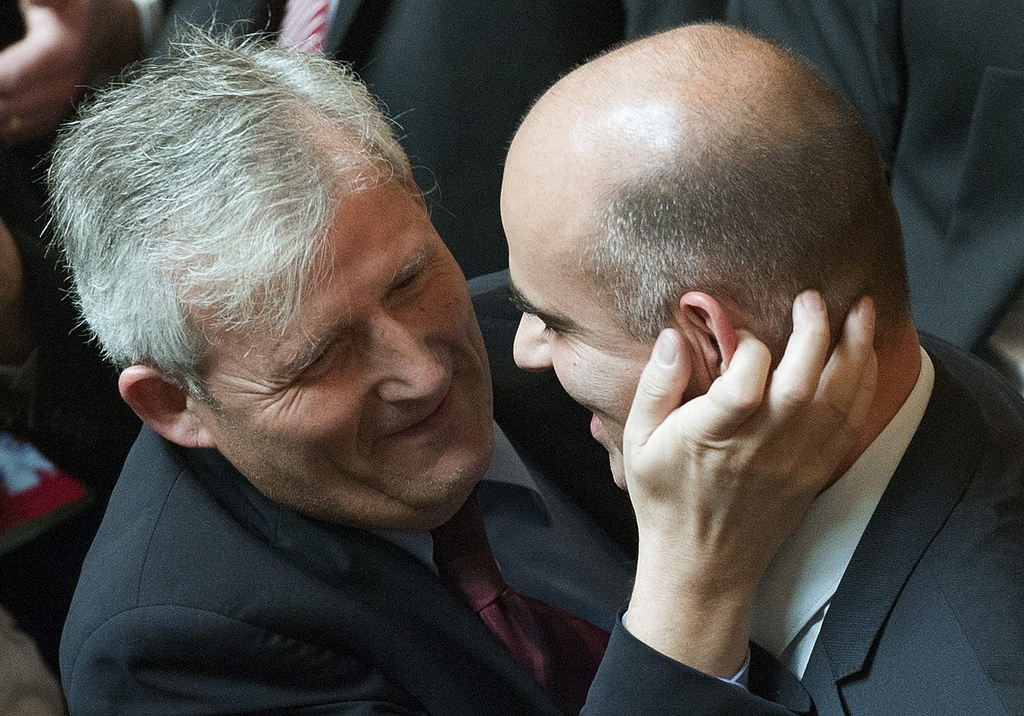Cabinet doesn’t want to be chosen by the people

The Swiss cabinet has recommended the rejection of an initiative that would see its seven members elected popularly rather than by parliament as is currently the case, saying such a change would have a negative effect on Swiss democracy.
The initiative was launched by the rightwing Swiss People’s Party, which views the idea as a means of reinforcing the democratic rights of the people and giving the cabinet stronger democratic legitimacy.
But in rejecting the initiative on Wednesday, the cabinet said a popularly elected cabinet would upset the balance between it and the parliament. It said the initiative would lead to partisan politics playing a greater role in decision-making by the cabinet and be detrimental to the principle of collegiality.
“In the cabinet opinion, the popular initiative seeks to solve a problem where in reality there isn’t one, because the election of cabinet members by the parliament is a time-tested process. This mode of election contributes to the peaceful coexistence of the different communities which make up Switzerland, to the country’s stability and prosperity,” the cabinet said in a statement.
The Swiss cabinet is elected by parliament every four years following national parliamentary elections. Because of a long-standing convention, its make-up usually consists of two people from each of the three strongest parties in parliament and one person from the fourth-strongest party.
However, the unofficial power-sharing pact was undermined in 2007 when parliament elected Eveline Widmer-Schlumpf to the cabinet instead of her then People’s Party colleague Christoph Blocher. Since then, the People’s Party has been unable to regain its second seat, despite having the strongest representation of all the parties in the parliament.
The cabinet said that if elected by popular vote, the cabinet ministers would be beholden to party politics and be at risk of no longer being viewed as leaders of a common project.
In addition, the proposal would push ministers to be in “permanent campaign” mode, taking up much of the second half of their mandates and putting at risk their ability to carry out the functions of government.
“The cabinet also notes in its response the pitfalls related to the cost of campaigns. Ministers and their parties may be forced to depend on wealthy individuals, businesses and interest groups to finance their election. Moreover, the national parties would gain in influence vis-à-vis the cantonal sections, leading to a trend towards centralisation,” the cabinet said.
In rejecting the initiative, the cabinet did not offer a counterproposal. The matter will now be sent to parliament for consultation by commissions of the Senate and the House of Representatives.

In compliance with the JTI standards
More: SWI swissinfo.ch certified by the Journalism Trust Initiative





You can find an overview of ongoing debates with our journalists here. Please join us!
If you want to start a conversation about a topic raised in this article or want to report factual errors, email us at english@swissinfo.ch.